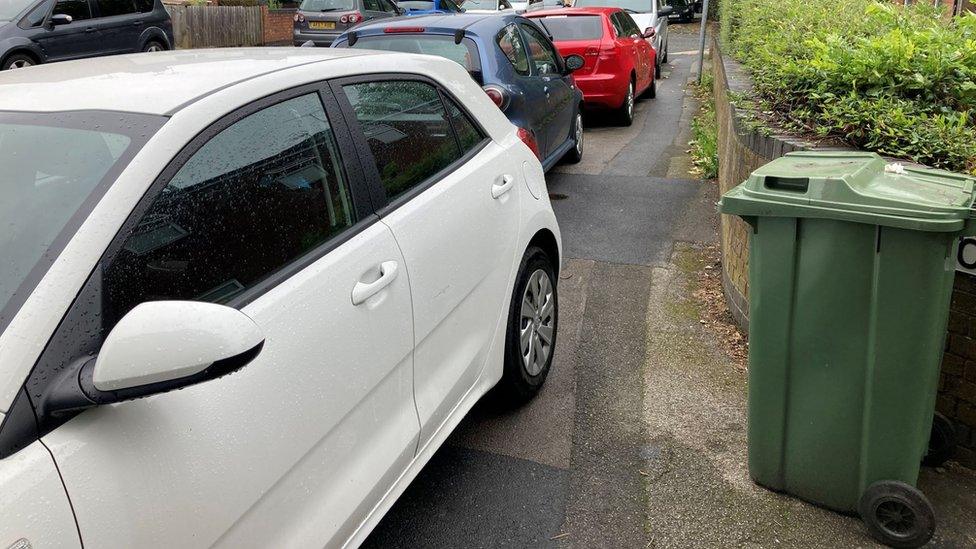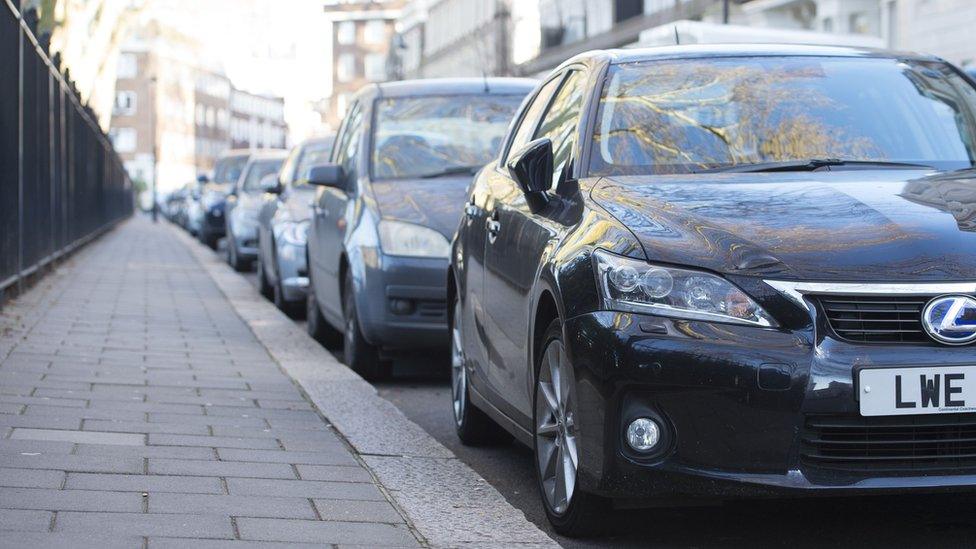Councils call for pavement parking to be banned across England
- Published

A government consultation on giving councils the power to ban pavement parking ended in November 2020, but no announcement has been made
Powers to ban pavement parking should be extended across England to make streets safer, a new study says.
The Local Government Association (LGA) says councils do not have the powers they need to tackle the "scourge" of pavement parking.
Wheelchair users, older people and those with pushchairs are put at risk by being forced to use the road, according to the report.
The government says it has consulted with councils on how to take action.
London is currently the only area in England where pavement parking is banned, and the report urges the government to extend the ban to the rest of the country.
According to the LGA, "inconsiderate parking presents a real hazard and a potential danger to life".
A Department for Transport (DfT) consultation on giving councils in the rest of the country the power to prohibit pavement parking ended in November 2020, but no announcement has been made.
A DfT spokesperson said its consultation response "will be published in due course".
"While local authorities already have powers to prohibit pavement parking through local regulation, we have consulted on further helping them take action," it said.
The new report was commissioned by the LGA and carried out by travel charity Sustrans and disability rights organisation Transport for All.
It says pavement parking can also damage the surface, creating trip hazards and leading to costly repairs.

London is the only area in England where pavement parking is banned
The LGA, the national membership body for local authorities, said a change in the rules is "long overdue" and would help councils protect older and vulnerable people from injury.
LGA transport spokesman Darren Rodwell said: "Pavement parking is one of the biggest complaints from pedestrians, but three years on councils outside of London still do not have the powers they need to tackle this scourge.
"Vulnerable and disabled people including wheelchair users, as well as parents with pushchairs, are forced into the road due to some drivers' inconsiderate parking, presenting a real hazard and potential danger to life.
"Repairing kerbs and pavements damaged by pavement parking is also expensive and this funding could be better used to resurface our roads and pavements, support local buses and provide more suitable parking."
'At worst hazardous'
Simon Williams, head of policy for the RAC motoring organisation, said pavement parking was "at best inconvenient and at worst hazardous".
"Rather than an outright ban, we think it would be more effective if local authorities were given enforcement powers to prevent unnecessary pavement obstructions," he said.
"This prevents the need for them having to survey all their roads to work out where exemptions need to be made."
City of Edinburgh Council became the first in Scotland to enforce a nationwide ban on pavement parking on January 29.
Related topics
- Published8 February 2024